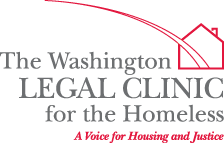The following testimony was delivered by Amber W. Harding before the DC Council’s Committee on Human Services at its Budget Hearing on the Department of Human Services earlier today.
Last September, I sent an email to Mayor Gray pleading for his help for a family. Here is an excerpt, with names changed:
John is 14 years old and has cerebral palsy and significant other disabilities, including a developmental delay. John is paralyzed on his right side. He is nonverbal. He needs help eating and caring for himself.
His mom is Loretta James. She worked hard as a licensed childcare provider for more than 20 years until her lupus, rheumatoid arthritis and fibromyalgia caused her so much pain that she couldn’t care for the kids at work and at home like she needed to. She lost her job– and then she lost her apartment in Ward 8 after her savings ran out. She spent Monday and Tuesday night in a car with John and her 11 year old son, Nathan, because she was told there’s no shelter or housing for her family.
Loretta suffers from Raynaud’s phenomenon, which means that stress or cold can cause her to lose feeling in her fingers and toes, and can even lead to gangrene or necrosis—permanent harm from having to sleep in a car.
Mayor Gray never responded to this email. The James family was one of hundreds of families left in unsafe places because the Mayor refused to authorize their placement, even when there were as many as 100 vacant rooms at DC General.
Even this winter, our lawyers fought for about 50 families or roughly 100 kids who had no safe place to sleep when they were turned away on freezing nights—that’s about 1/5 of the families placed in shelter this winter. DHS dismissed our concerns about these families as not “statistically significant.” 100 DC kids in danger of dying of hypothermia in one winter is significant, statistically and otherwise.
When Mayor Gray asked DHS what it needed to serve homeless families better, Director Berns did not say housing—even when he knew the Mayor was going to commit $100 million to affordable housing and even when DHS admits that the primary reason for the sharp increase in family homelessness is “the decreasing supply of affordable housing.” Instead, Director Berns decided the best way to help homeless families is to strip their legal protections so DHS can kick more families out.
We disagree. We think the more direct and humane answer is to provide homeless families with affordable housing. The Mayor devoted the bulk of his $100 million commitment to affordable housing to long-term housing production. 2-3 years to wait for a chance, but no guarantee, at housing is a too long in the life of a child. We, along with the Fair Budget Coalition, are asking the Council to invest $1.5 million in the Housing First program to serve 60 homeless families $3.5 million in LRSP tenant vouchers to serve 240 families. An investment in housing that ends homelessness quickly will save DHS much more than the $2.3 million they claim to need.
The only housing increase for homeless families in the Mayor’s FY14 budget is in the Rapid Rehousing program, but the program has faced serious criticism from youth, domestic violence and housing advocates, as well as families themselves, and needs both regulatory changes and objective data and performance measures to be a more effective program. DHS has good reason to believe that families have to be strong-armed into accepting rapid rehousing, but not because they don’t know what’s good for them. Rather, families quite rationally fear re-traumatizing their children with another eviction if they accept a placement where they could lose all assistance at the end of four months whether they can afford the rent or not. Until policy changes are instituted, and because there is already $11 million in the FY14 budget for rapid rehousing, we would not support any further increase in funding.
DHS tries to justify using the Budget Support Act to propose a major overhaul of the philosophy and management of homeless services by claiming that kicking more families out of shelter and housing will save the agency almost $2.3 million, a hole they would otherwise be unable to fill. This claim, quite frankly, lacks credibility. Why didn’t the CFO certify these savings in the budget? How can it be that they haven’t decided which part of the continuum will be affected by some of the proposals, yet they know, to the dollar, what the savings will be? How can it be that kicking more families out of housing will save money when those families are likely to end up back in shelter, which everyone agrees is far more expensive than housing? Or is DHS literally banking on all those kids living on the street without any safe shelter?
Those aren’t the only problems with the proposal or the agency’s justifications, but they should be enough to call this surreptitious placement in the Budget Support Act the sham it is. We ask you to remove these punitive and poorly drafted provisions from the Budget Support Act. We, along with the affected community, would appreciate an opportunity to provide extensive input on the potential harm of this proposal– input we will have no opportunity to provide in the abbreviated budget process.
The Mayor’s so-called solution to family homelessness is to punish DC parents and children for their poverty and their desperation. We ask the Council to solve family homelessness with housing, not by forcing more children to live on the street.
Summary of recommendations for homeless families:
- Pull Homeless Services Reform Act amendments from Budget Support Act (BSA).
- Engage community in policy-making process around any legitimate concerns from DHS and introduce resulting legislation after the budget process is over.
- DHS should rewrite rapid rehousing regulations to meet community’s concerns and better protect participants before FY14 begins.
- Propose language for BSA to collect data on outcomes and institute performance measures for rapid rehousing.
- Fund 300 housing vouchers for homeless families ($1.5 million in Housing First and $3.5 million in tenant vouchers through the Local Rent Supplement Program (LRSP)).
- Legislate a right to shelter or housing year-round for all families with no safe place to sleep.





